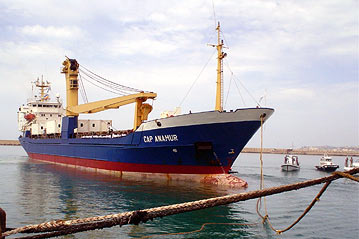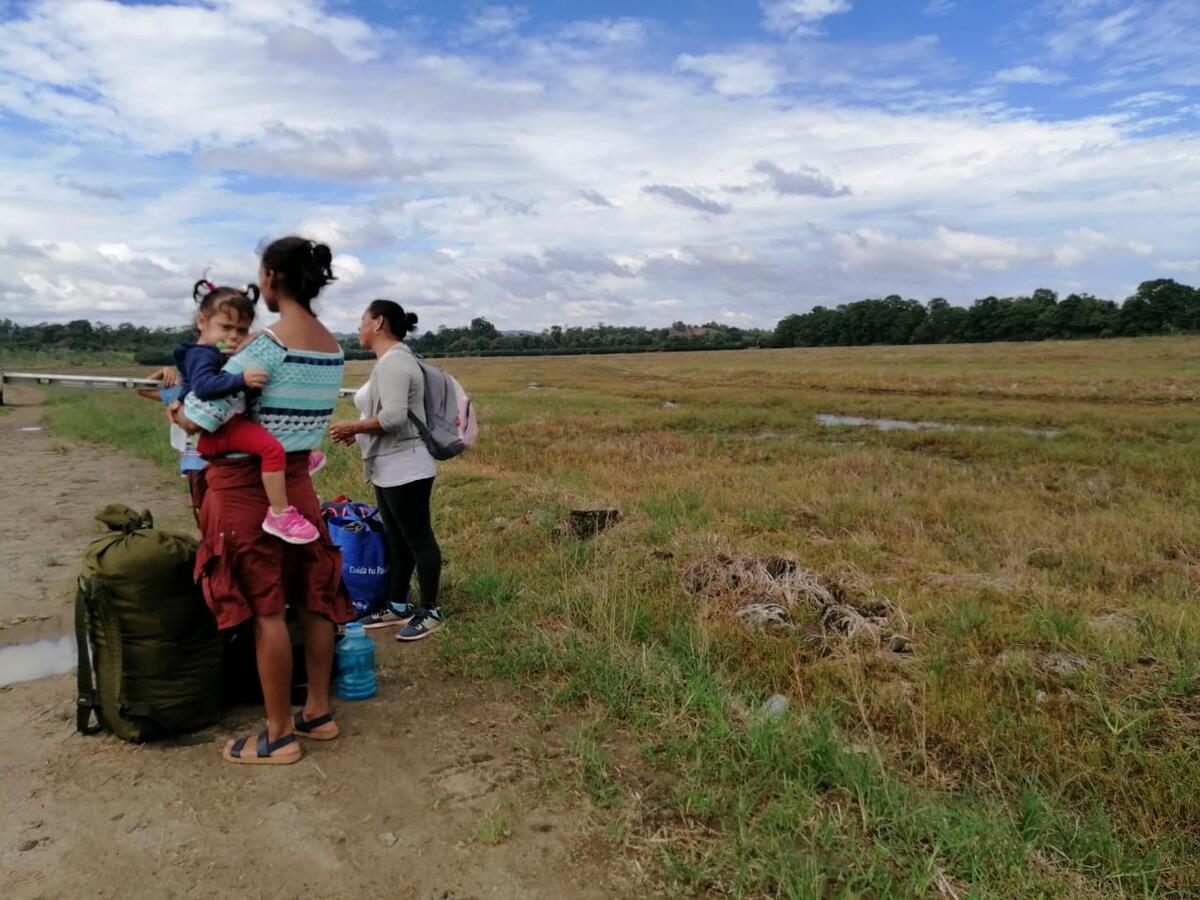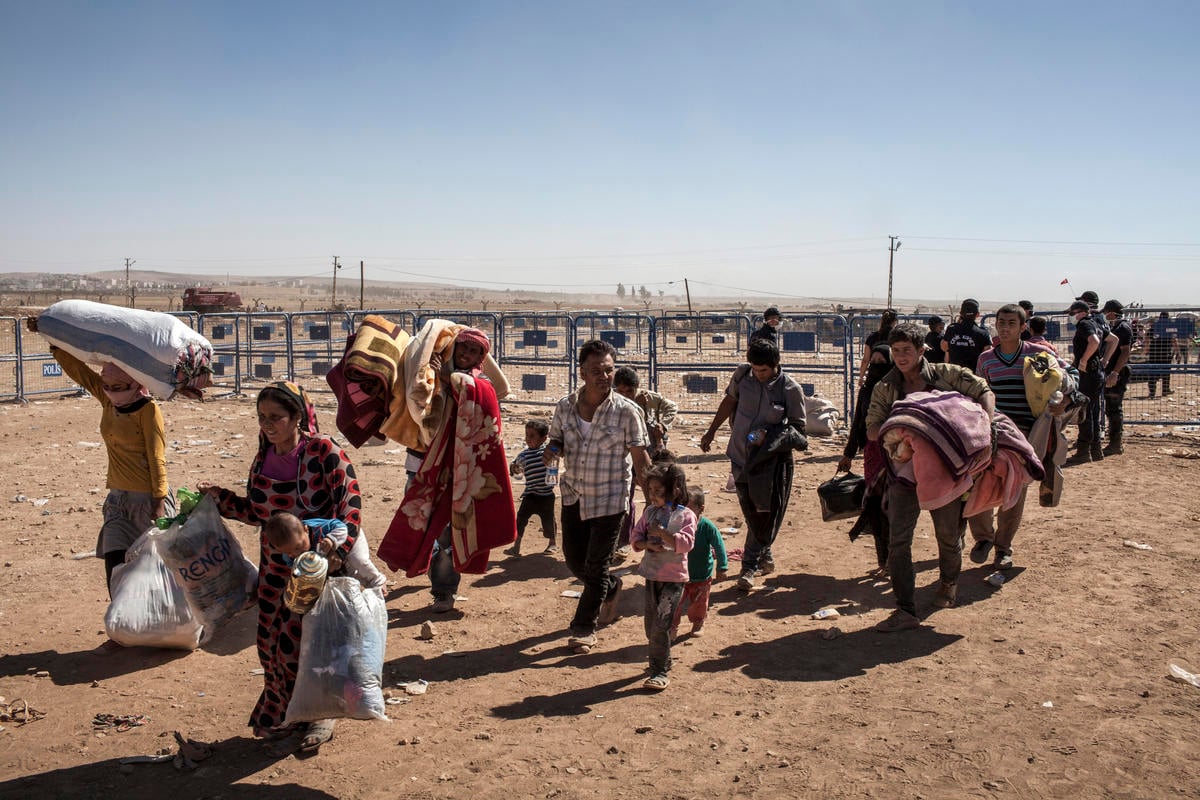Handling of Cap Anamur asylum claims was flawed, says UNHCR
Handling of Cap Anamur asylum claims was flawed, says UNHCR

GENEVA, July 23 (UNHCR) - The UN refugee agency has criticised the handling of the Cap Anamur boat incident that has led to the expulsion of a group of asylum seekers from Italy and underlined the need for better burden-sharing in the European Union.
The controversy surrounds a group of 37 people who were rescued from the southern Mediterranean by the German non-governmental organisation vessel, Cap Anamur, in late June.
In a note verbale sent to the Italian government on Friday, UNHCR applauded the government's move to allow the group to disembark on humanitarian grounds, but raised concerns over serious flaws in the subsequent handling of the asylum claims that have resulted in the deportation from Rome of 25 people to Ghana on Thursday and five to Nigeria on Wednesday.
One person appears to have received a temporary residence permit in Italy without going through the asylum process.
"Irrespective of whether or not these people were indeed all from Ghana and Nigeria, and whether or not they were refugees or people trying to enter Europe for other reasons, we are very concerned at the manner in which their cases have been dealt with," said Raymond Hall, UNHCR's Director for Europe.
Shortly after disembarking in Sicily, despite the fact that the group had expressed their wish to claim asylum, they were kept in a holding centre for illegal immigrants and given no legal counsel. They were also met by diplomats from several possible countries of origin, including Sudan. Exposing possible refugees to a representative of the government that may be responsible for their flight goes against basic refugee protection principles.
Furthermore, the five-member Central Commission that carries out refugee status determination in Italy appears to have been under strong pressure from the outset, with the authorities already informing the media that no one from the group was a refugee even before the Commission had a chance to interview them.
When the interviews took place, they were conducted in evident haste - the Commission had less than two days to examine all 36 cases - and without adequate preparation. There was almost no information available on the countries of origin, and very inadequate interpretation facilities.
Despite the pressure, the Commission recommended that 22 people from the group be allowed to stay for humanitarian reasons. Another 14 were rejected. Most, if not all, of the group of 22 were nevertheless deported on Thursday, even though it is not clear whether the procedure undertaken by the Commission to revise its original decisions was formalised.
UNHCR had limited access to the entire group while they were still being held in Sicily. On Monday, the agency was given access to the group of 14 who had had their applications rejected and were by then in Rome. All 14 had notified lawyers of their desire to appeal the decision. On Tuesday, UNHCR could not get access to the other group of 22 recommended for humanitarian status by the Commission, who were also appealing the decision not to grant them full refugee status under the 1951 UN Refugee Convention.
Since Monday, UNHCR was not able to obtain access to either of the groups subsequently deported and its requests for information were left unanswered. Unrestricted access to asylum seekers is an important element of UNHCR's supervisory role under the 1951 Convention.
"Acceptable standards for the treatment of asylum claims must be upheld in all instances," said Hall. "In this particular case, several aspects of the process fall short of international and European norms, including absolute minimum standards laid down in the recently agreed EU directive on asylum procedures. The politicization of these cases on all sides was also very unfortunate. We hope to be able to collaborate with the Italian authorities to ensure that, in future, asylum procedures include appropriate safeguards."
"We also feel that there are still question marks surrounding the conduct of Cap Anamur," Hall said. "At the end of the day, the 37 people on that boat, whoever they are, became victims of various competing interests. That is not the right way to approach the extremely serious - indeed often life-saving - issue of asylum."
UNHCR said that the whole unfortunate episode - which at various points threatened to embroil three states (Italy, Germany and Malta) in complex legal disputes - underlined the clear need for the European Union to adopt measures to ensure better burden-sharing among states.
This is particularly the case where there may be different interpretations of state responsibility, or where a particular problem involving asylum seekers or refugees falls disproportionately on the shoulders of one particular EU country. For the most part, these are likely to be the Mediterranean states, such as Italy, and the EU border states in Central Europe.
UNHCR recently made a set of far-reaching proposals to the EU which attempt to grapple with some of these difficulties.








